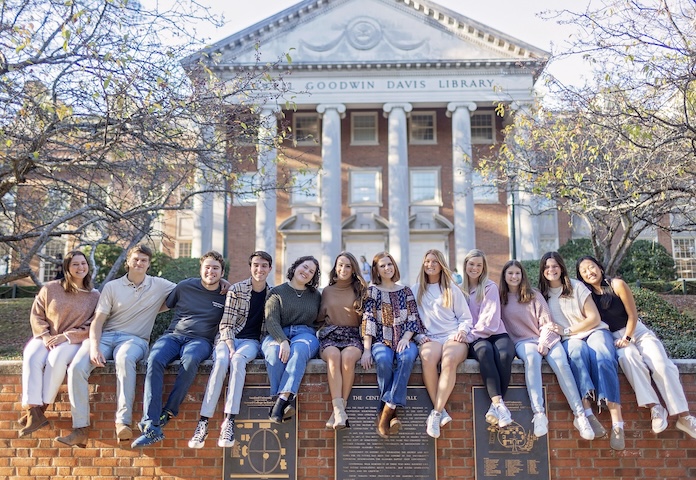 Samford University, through a series of memorandums of understanding (MOUs) with community colleges, is streamlining the path for transfer students pursuing a bachelor’s degree.
Samford University, through a series of memorandums of understanding (MOUs) with community colleges, is streamlining the path for transfer students pursuing a bachelor’s degree.
“Higher education is all about serving the students today who will lead the achievements of tomorrow,” said Dr. Beck A. Taylor, president of Samford. “These agreements reflect our commitment to educational excellence for students who begin their journey at other campuses and continue through Samford.”
Samford currently extends MOU partnerships to these regional two-year colleges:
- Jefferson State Community College, signed June 2024
- Gadsden State Community College, signed August 2024
- Wallace State Community College, signed January 2025
- Lawson State Community College, signed January 2025
- Snead State Community College, signed March 2025
APPLY: Latest updates for community college transfers
“I hope these partnerships open up new pathways and opportunities for even more students to come to Samford,” Taylor said.
For students who earned an Associate in Arts or an Associate in Science from a two-year college, there is a “completer pathway” to a bachelor’s degree, which includes courses offered through Samford Online undergraduate programs. There’s also a full degree pathway for incoming Samford students who have not earned an associate degree.
Samford will accept credits for students who completed a traditionally non-transferable technical degree at community colleges. The partnerships include reverse transfer agreements, in which students who transfer before graduating from two-year colleges can complete their associate degree at Samford.
Students transferring from those community colleges can qualify for a number of scholarships, including ones for Phi Theta Kappa Honor Society students and STEM scholarships for students who have completed two years of math or science-related study. Samford agreed to introduce transfer scholarships specific to each community college, offering $2,000 for every 24 credit hours taken over three semesters to all admitted regular, full-time transfer students.
“Since the development of Samford’s strategic plan, Fidelitas, we have focused even more on the creation of new, expanded, and revised academic programs that enhance our existing offerings and meet the needs of new student populations,” Taylor said.
